The potential evidence leads to some pretty bizarre implications.
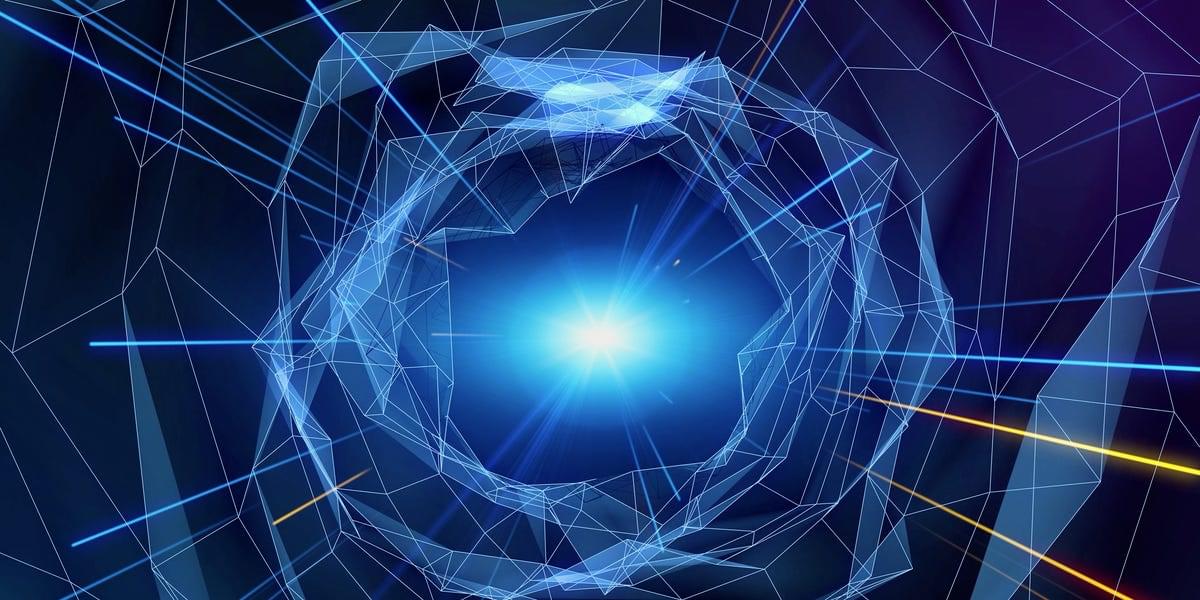

Make a donation to Closer To Truth to help us continue exploring the world’s deepest questions without the need for paywalls: https://shorturl.at/OnyRq.
That the universe began seems astonishing. What brought it about? What forces were involved? How did the laws of nature generate the vast expanse of billions of galaxies of billions of stars and planets in the structures that we see today? What new physics was involved? What more must we learn?
Free access to Closer to Truth’s library of 5,000 videos: http://bit.ly/376lkKN
Watch more interviews on how our universe began: https://bit.ly/3qmbWPu.
John Richard Gott III is a Professor of Astrophysical Sciences at Princeton University who is noted for his contributions to cosmology and general relativity.
Register for free at CTT.com for subscriber-only exclusives: http://bit.ly/2GXmFsP
Support this channel on Patreon to help me make this a full time job: https://www.patreon.com/whatdamath (Unreleased videos, extra footage, DMs, no ads)
Alternatively, PayPal donations can be sent here: http://paypal.me/whatdamath.
Get a Wonderful Person Tee: https://teespring.com/stores/whatdamath.
More cool designs are on Amazon: https://amzn.to/3QFIrFX
Hello and welcome! My name is Anton and in this video, we will talk about the claims that we live inside a black hole.
Links:
https://en.wikipedia.org/wiki/Black_hole_cosmology.
https://arxiv.org/pdf/2505.23877
https://arxiv.org/pdf/1910.10819v2
#blackhole #unvierse #astronomy.
0:00 Is universe basically a black hole?
1:10 Defining a black hole and the universe.
2:30 How would universe end up inside a black hole?
5:00 Explanations for how this may work.
6:35 Rotation and angular momentum.
8:05 What this could explain.
9:35 Counter evidence and why it’s probably not a black hole.
13:00 Rotation explanation using the cosmic web.
14:00 Conclusions.
Enjoy and please subscribe.
Bitcoin/Ethereum to spare? Donate them here to help this channel grow!
bc1qnkl3nk0zt7w0xzrgur9pnkcduj7a3xxllcn7d4
or ETH: 0x60f088B10b03115405d313f964BeA93eF0Bd3DbF
Thank you to all Patreon supporters of this channel.
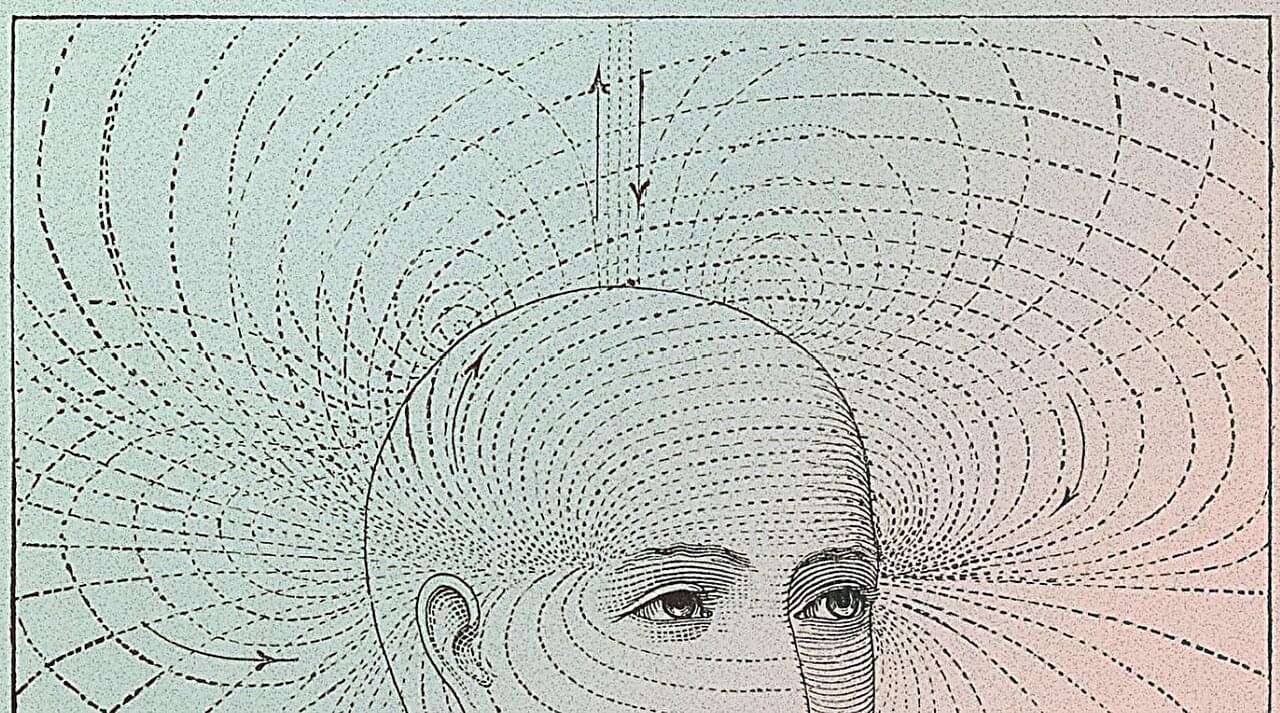
In a recent paper, SFI Professor David Wolpert, SFI Fractal Faculty member Carlo Rovelli, and physicist Jordan Scharnhorst examine a longstanding, paradoxical thought experiment in statistical physics and cosmology known as the “Boltzmann brain” hypothesis—the possibility that our memories, perceptions, and observations could arise from random fluctuations in entropy rather than reflecting the universe’s actual past. The work is published in the journal Entropy.
The paradox arises from a tension at the heart of statistical physics. One of the central pillars of our understanding of the time-asymmetric second law of thermodynamics is Boltzmann’s H theorem, a fundamental concept in statistical mechanics. However, paradoxically, the H theorem is itself symmetric in time.
That time-symmetry implies that it is, formally speaking, far more likely for the structures of our memories, perceptions, and observations to arise from random fluctuations in the universe’s entropy than to represent genuine records of our actual external universe in the past. In other words, statistical physics seems to force us to conclude that our memories might be spurious—elaborate illusions produced by chance that tell us nothing about what we think they do. This is the Boltzmann brain hypothesis.
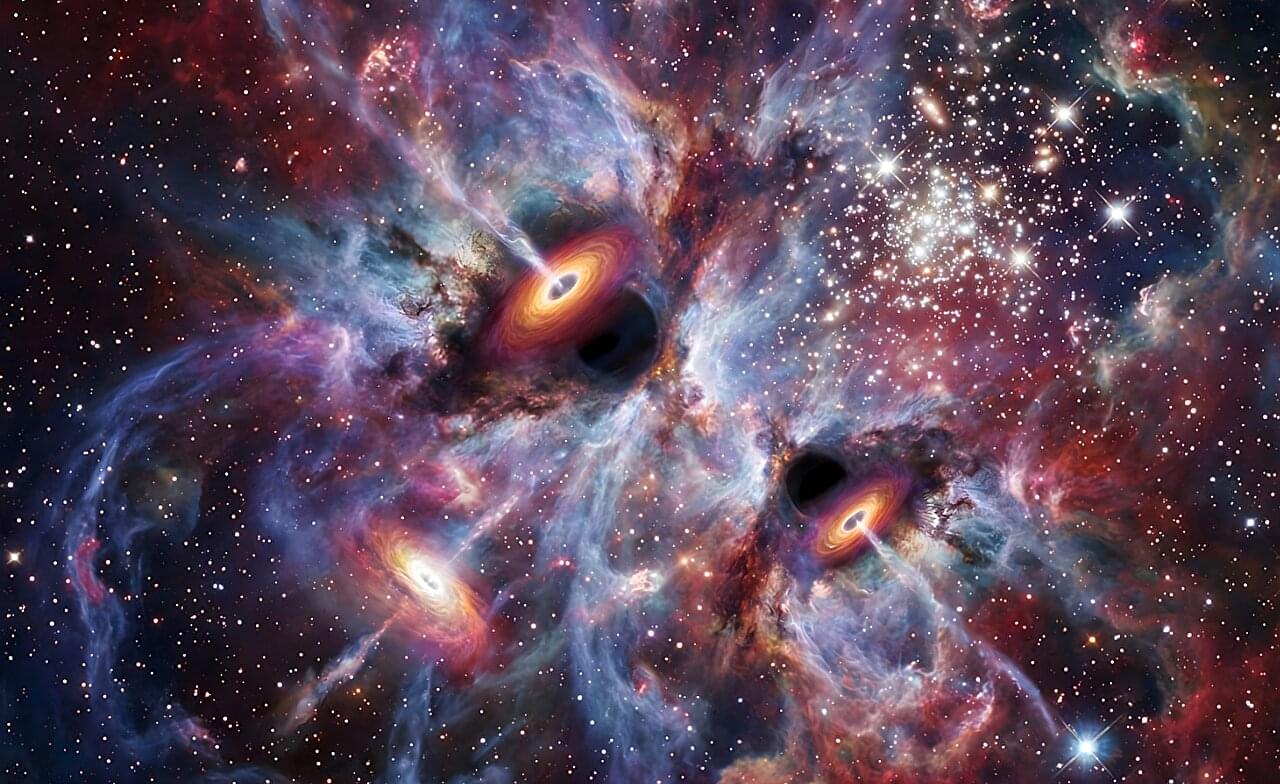
It’s one of astronomy’s great mysteries: how did black holes get so big, so massive, so quickly. An answer to this cosmic conundrum has now been provided by researchers at Ireland’s Maynooth University (MU) and reported today in Nature Astronomy.
“We found that the chaotic conditions that existed in the early universe triggered early, smaller black holes to grow into the super-massive black holes we see later following a feeding frenzy which devoured material all around them,” says Daxal Mehta, a Ph.D. candidate in Maynooth University’s Department of Physics, who led the research.
“We revealed, using state-of-the-art computer simulations, that the first generation of black holes—those born just a few hundred million years after the Big Bang—grew incredibly fast, into tens of thousands of times the size of our sun.”
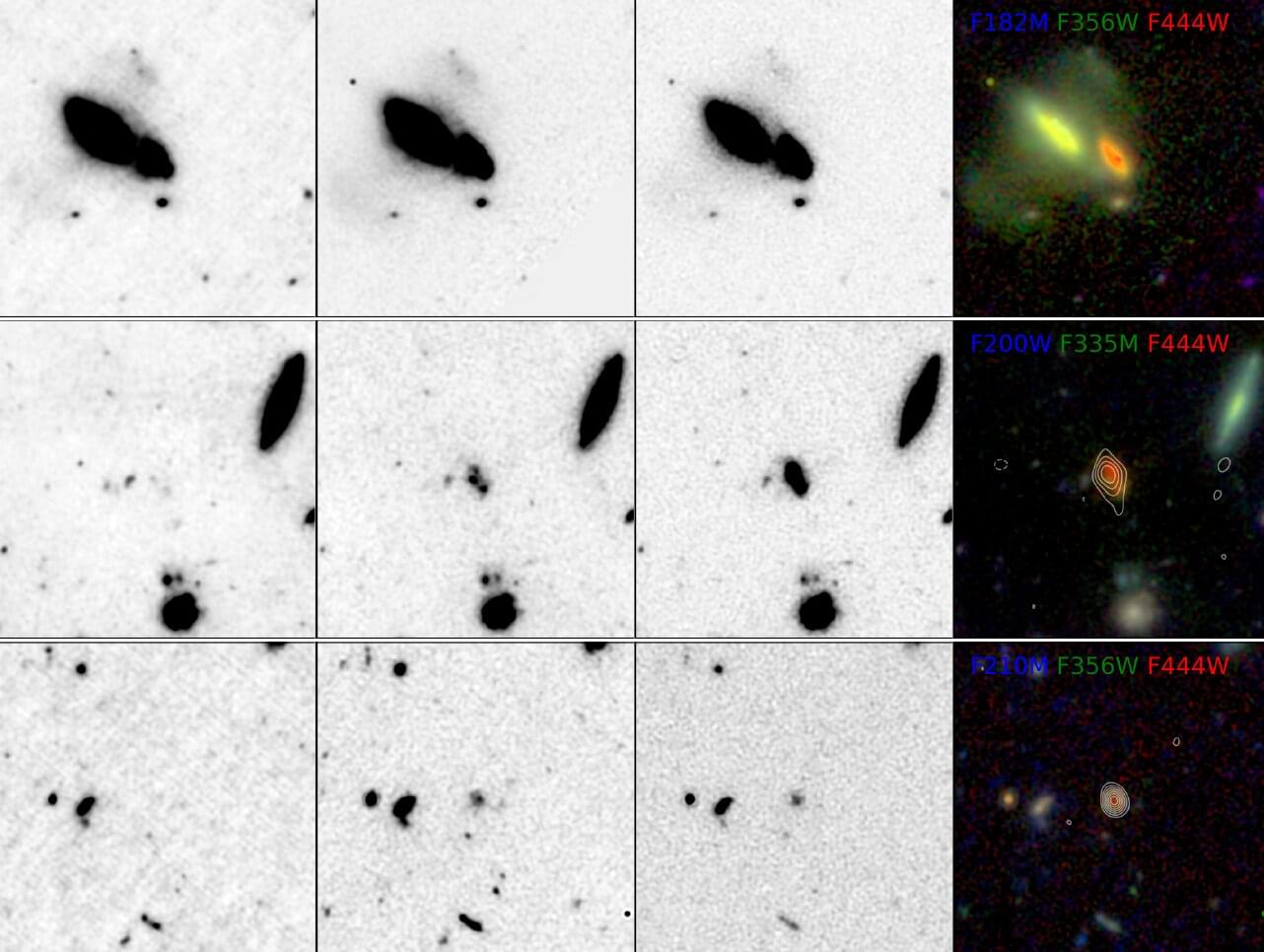
Astronomers have discovered a vast, dense cluster of massive galaxies just 1 billion years after the Big Bang, each forming stars at an intense rate from collapsing clouds of dust. Reported in Astronomy & Astrophysics by an international team, led by Guilaine Lagache at Aix-Marseille University, the structure appears to challenge existing models of how rapidly stars could have formed in the early universe.
In many newly forming galaxies, immense clouds of gas and dust collapse under their own gravity, igniting rapid bursts of star formation. This process can be studied by observing extremely distant galaxies, whose light is only now reaching Earth after traveling for more than 12 billion years.
However, these observations present a challenge for astronomers. Since dust within the distant galaxy is a strong absorber of the light produced by newly forming stars, these regions are often impossible to observe directly at visible wavelengths.

From Dark till First Dawn of Universe Simulation: EWOG Quantum Gravity Theory.
🚀From Dark till First Dawn of Universe Simulation: Why EWOG is promising to the Cosmic Race! 🌌 https://lnkd.in/gFBNsKtq Ever wonder how the James Webb Space Telescope (JWST) keeps finding massive, mature galaxies that “shouldn’t exist” yet? Standard cosmology (ΛCDM) is struggling to explain this without extreme fine-tuning. But Entanglement-Weighted Operator Gravity (EWOG) provides a first-principles answer. 🧩 The “Quantum Turbo” Effect In the dense early universe, high quantum entanglement between matter and geometry temporarily boosted gravity’s strength. The Core Idea: Gravity isn’t a constant; it’s an operator weighted by entanglement (Ŵ). * Curvature from Commutators: R̂ᵤᵥ = [∇̂ᵤ, ∇̂ᵥ] * The Boosted Coupling: G_eff(a, k) = G_N [1 + α₀(1 — e⁻ᵐʳ)ℱ] This “turbo boost” allowed gas to collapse into stars 150,000 years earlier than standard models predict.
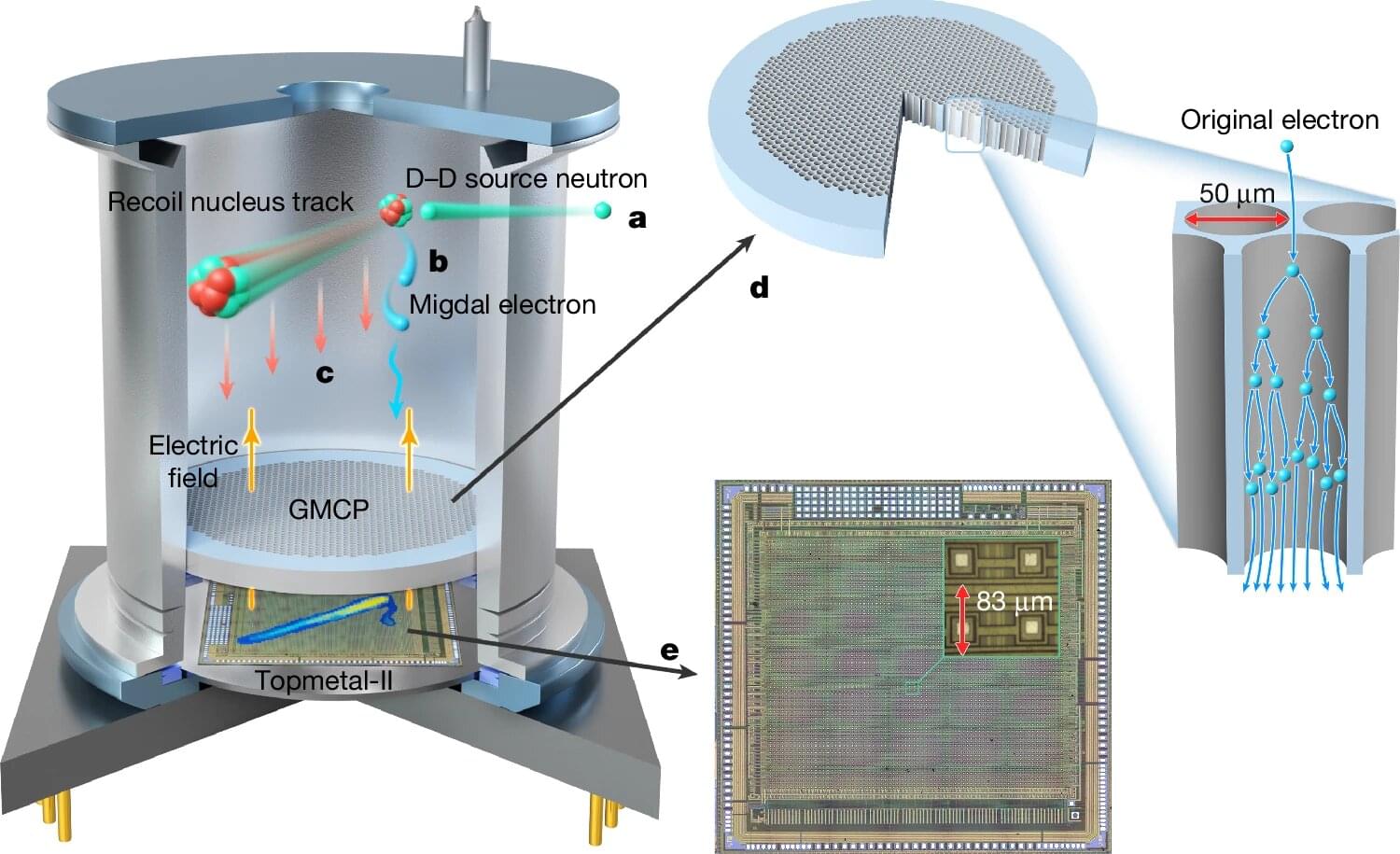
In a landmark discovery that bridges nearly a century of theoretical physics, a Chinese research team has successfully captured the first direct evidence of the Migdal effect, a breakthrough with profound implications for probing dark matter—the invisible substance thought to make up roughly 85% of the universe.
The finding, published in the journal Nature, confirms a prediction made in 1939 by Soviet physicist Arkady Migdal: When an atomic nucleus suddenly gains energy—for instance, from a collision with a neutral particle (like a neutron or a dark matter candidate)—and recoils, the rapid shift in the atom’s internal electric field can eject one of its orbiting electrons.
For nearly nine decades, this “electron ejection” process remained purely theoretical. Direct evidence proved elusive because the effect occurs on an incredibly tiny scale and is easily masked by background noise from cosmic rays and natural radiation.
When we talk about the universe, we usually imagine space filled with galaxies, stars, and matter expanding endlessly in all directions. It feels natural to think of the universe as a vast container — a place where everything exists. But modern theoretical physics suggests that this picture may be deeply misleading.
In this video, we explore a more fundamental question: what is the universe really made of? Is it space? Matter? Energy? Or something far more abstract than our everyday intuition allows?
Drawing on ideas associated with Leonard Susskind, this long-form exploration challenges the assumption that the universe is a physical stage where reality takes place. Instead, physics increasingly points toward a universe defined not by objects and locations, but by information, relationships, and boundaries.
Black hole physics, quantum theory, and modern cosmology have forced scientists to rethink the foundations of reality. In some of the deepest descriptions of nature, space and time no longer appear as fundamental ingredients. What we experience as a three-dimensional universe may be an emergent structure — a convenient description rather than the true underlying reality.
Rather than focusing on equations, this video emphasizes intuition and conceptual understanding. Through thought experiments and simple analogies, we examine why the universe feels like a place, why that picture works so well at human scales, and why it may break down at the most fundamental level.
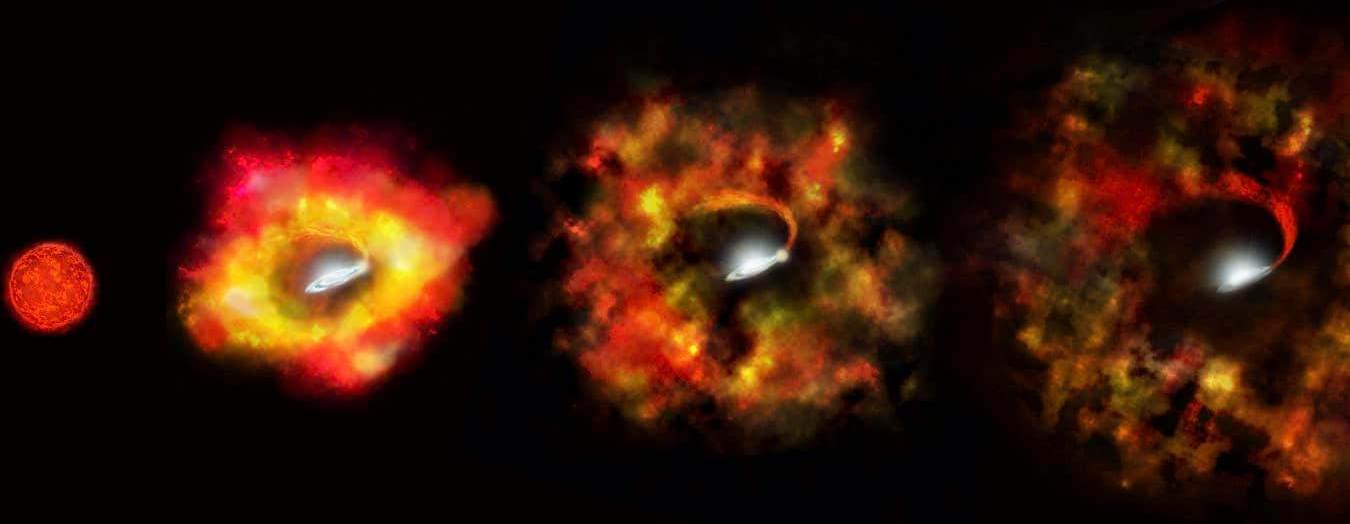
It is theoretically possible for a particularly massive star to collapse in on itself to form a black hole rather than exploding in a supernova, and we might now have seen the process in action.
By Alex Wilkins